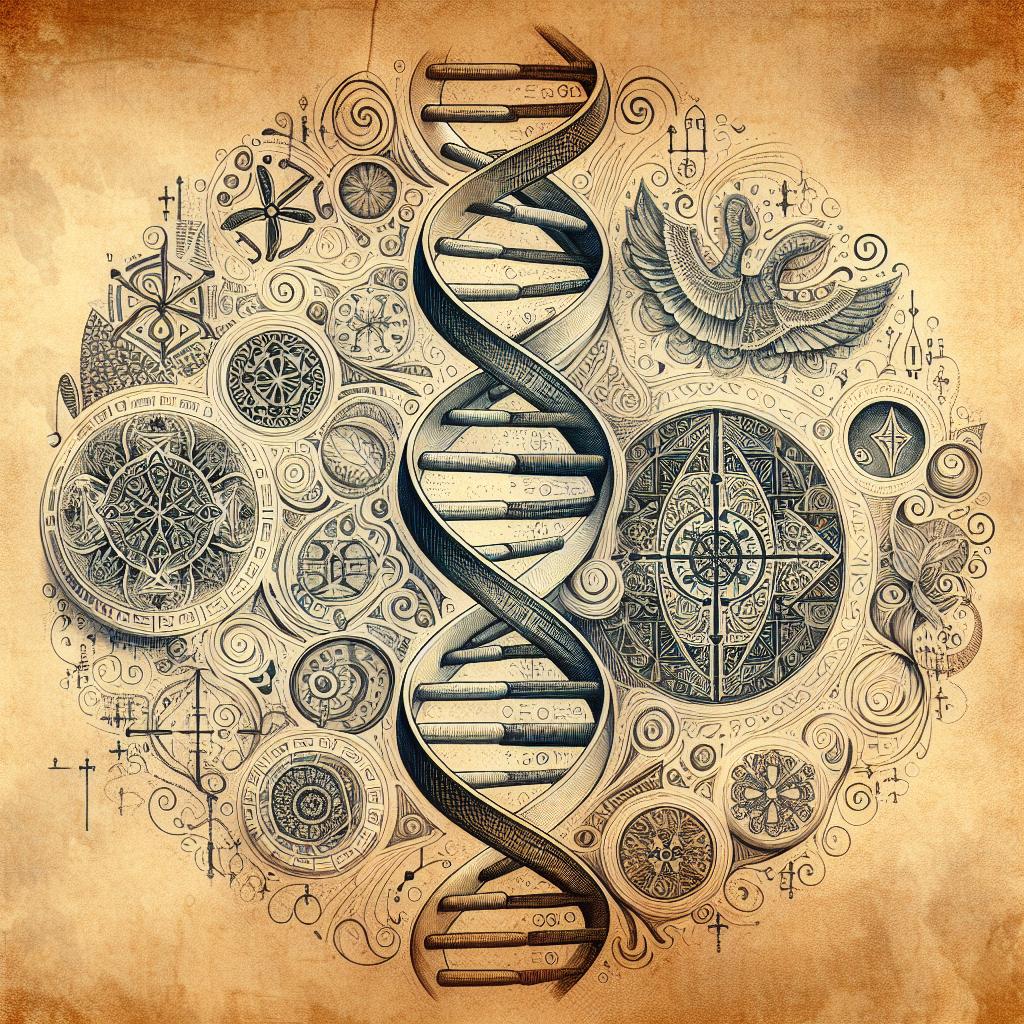
Unveiling the Divine Purpose: Embracing the Redemption Journey of Junk DNA
Published: 14 May 2024
Junk DNA: Debunking the Evolutionary Myth
When scientists first discovered introns, some evolutionists hastily labeled them as 'junk' DNA. They believed that these non-coding sequences were remnants of our evolutionary past, making them 'vestigial' DNA. However, history has shown that rushing to such conclusions can be a grave mistake. Over time, research has revealed the functions of numerous organs in the human body that were once considered useless leftovers of evolution. Today, the list of truly vestigial organs has dwindled to almost zero.
Now, we are witnessing a similar revelation with the so-called 'junk' DNA. Piece by piece, this mysterious DNA is unveiling its true purpose and functionality. Researchers have made a groundbreaking discovery: mutations in introns can disrupt a fundamental process called imprinting. Imprinting ensures that only certain genes from either the mother or father are expressed, but not both. When both genes are expressed, it can lead to various diseases and even cancer. One particular intron segment has been found to promote the transcription of an antisense-RNA sequence that suppresses the expression of the paternal gene in this specific case.
The field of molecular biology continues to unveil the astounding complexity of cellular biochemistry. It would be unwise to dismiss anything as 'junk' without fully understanding its purpose and function. Similar to the notion of 'vestigial organs,' evolutionary ideas about molecular machinery within cells often capitalize on our lack of knowledge in these areas.
Introns: Unveiling Their Hidden Functions
Introns are segments of DNA that do not directly code for proteins. Evolutionists initially considered introns as remnants of our evolutionary history, assuming they were non-functional 'junk' DNA. However, further research has revealed their vital roles in gene regulation and other essential cellular processes.
Introns play a crucial part in ensuring proper gene expression by aiding in the formation of mature RNA molecules. They are transcribed along with exons, which are the coding sequences of DNA, and then removed during a process called splicing. This splicing mechanism allows cells to selectively include or exclude certain exons, resulting in different protein variants.
Think about it: Introns can be likened to unused portions of a recipe book. Although they are not directly involved in the final dish, their presence is necessary for selecting and organizing the essential ingredients.
Disrupting Imprinting: A Consequence of Mutated Introns
Imprinting is a critical process that ensures proper gene expression by silencing one copy of a gene inherited from either the mother or father. This selective expression is essential for normal development and prevents harmful genetic imbalances.
Recent research has uncovered a surprising link between introns and imprinting. Mutations in specific intron segments have been found to interfere with this delicate process, leading to various diseases and even cancer. One such example involves the promotion of antisense-RNA transcription by an intron segment. The antisense-RNA acts as a suppressor for the paternal gene, preventing its expression.
Why This Matters: Understanding the intricate relationship between introns and imprinting provides valuable insights into the functioning of our genetic machinery. It highlights how mutations in seemingly non-functional DNA can have profound consequences on our health. This knowledge challenges the notion that introns are 'junk' DNA and reinforces the idea that every component of our genome has a purpose.
The Complexity of Cellular Biochemistry
The ongoing discoveries in molecular biology continue to astound scientists and deepen our understanding of cellular biochemistry. Rather than confirming evolutionary ideas about 'junk' DNA, these findings continually reveal intricate systems and complex molecular machines within cells.
Consider the analogy of a car engine. Initially, someone might believe that certain parts are unnecessary or irrelevant, akin to 'junk.' However, as we delve deeper into the complexity of the engine, we realize that each component has a specific purpose and contributes to the overall functioning of the vehicle.
Similarly, with each new revelation in molecular biology, we gain a deeper appreciation for the complexity and purpose of every element within our cells. The notion of 'junk' DNA is gradually fading away as we unravel the intricate design embedded in our genetic code.
Think About It: The existence of 'junk' DNA has been used by some to argue against the idea of a Creator. However, as we uncover more about the functions and complexity of non-coding regions, it becomes increasingly evident that they are not remnants of evolution but rather integral components of a masterful design.
In conclusion, the idea of 'junk' DNA is being debunked as research uncovers the functions of supposedly non-coding regions. Introns, once considered evolutionary leftovers, now play crucial roles in gene regulation and other cellular processes. Mutated introns can disrupt imprinting, leading to diseases and cancer. These discoveries highlight the intricate complexity within our genetic machinery and challenge evolutionary assumptions. As we gain a deeper understanding, it becomes clear that every element in our genome has a purpose and reflects the ingenuity of a Creator.
